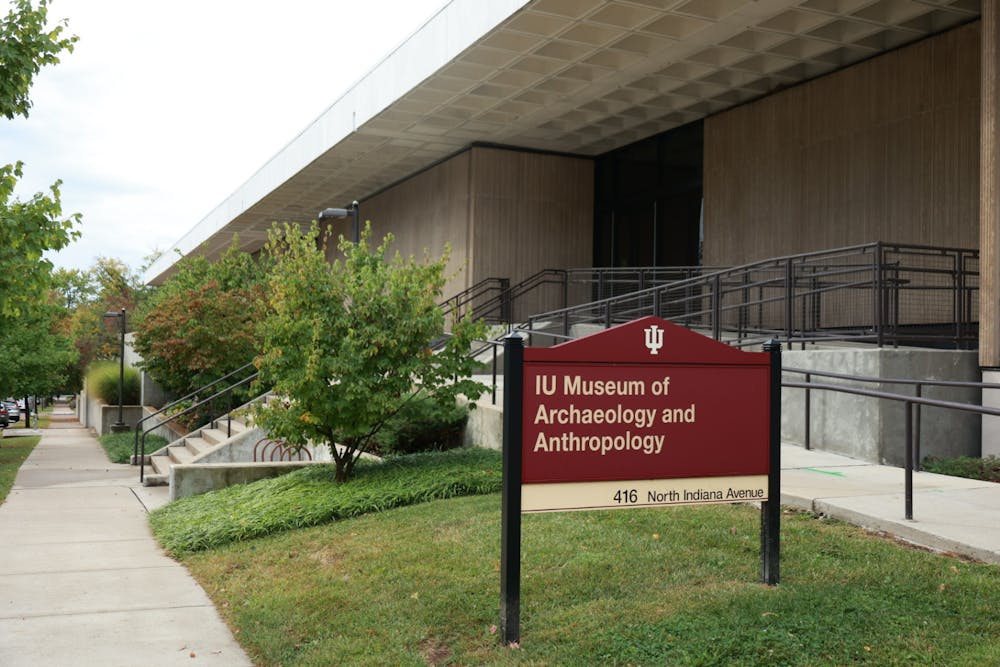IU will host the lecture “A Vampire For Every Age” at 5 p.m. Oct. 23 at the Museum of Archeology and Anthropology. The lecture will be led by Jeff Holdeman, director of undergraduate studies in the Department of Slavic and East European Languages and Cultures.
During Professor Holdeman’s talk at the IUMAA, he will teach about vampires similarly to how he does with his students in his vampire class. He will discuss the four categories of vampires: folkloric, literary, psychic and psychotic. Folkloric vampires are vampires found in East European folklore and prey off the living. Literary vampires are fictional characters that may have similar characteristics to folkloric vampires. Psychic vampires are very similar to humans, however, they drain another person’s energy. Finally, a psychotic vampire is someone who is fully human but possesses the urge to kill for blood. In addition to these four categories, Holdeman will identify his own fifth category of the modern subculture vampire that is more commonly known as the “goth” scene.
He will discuss the cultural idea of vampires and how they have had the ability to change our perspectives. In addition, he will talk about the different ways authors and filmmakers are able to tell stories through vampires.
"When people ask if you believe in vampires without specifying which type of vampire they're talking about, it creates confusion. To make things clearer, we need to understand that there are five different kinds of vampires," Holdeman said. “It’s a constellation of traits that’s different, and that’s what ultimately challenges our old definition of vampire.”
[Related: The eighth annual IU Online Conference aims to highlight IU 2030]
While challenging the older definition, Holdeman plans to make his lecture as interactive as possible. This lecture is for students, staff, parents and children. Holdeman wants his attendees to participate, and not just lecture about vampires, but to discuss them.
“Teaching respect for this field of study, that we have very serious methodologies, data analysis methodologies to approach this,” said Holdeman. “The people that thought that was just a huge mess of ridiculous superstitions, helping them see that, actually, all this can be put into categories that make this make really good sense.”
This lecture is open to those who are interested in learning about vampires, their history and how they have been able to affect our society today. It will be held on the first floor of the museum. There is no reservation required.
Holdeman said he attended the University of Tennessee where he studied French and Russian. After graduating from his undergraduate program, Holdeman went on to receive his master's degree from Ohio State University in Russian language and literature. Holdeman received his Ph.D. in Slavic linguistics from Ohio State University in 2002.
[Related: IU researchers investigate pesticide exposure through human-wildlife interactions in Uganda]
Holdeman said his first experience teaching a vampire course came when the Slavic department at Ohio State University was facing the risk of closure in 1995. Holdeman's professor, inspired by taking a vampire class at the University of Virginia, decided to teach the same course to prove that enrollments could increase.
Holdeman and a friend were recruited by his professor to be the graduate student assistants and help collect materials for the vampire class. The first vampire course that Holdeman taught had 220 students he said.
Holdeman said he prefers teaching the vampire class here at IU over his time teaching it at Ohio State University.
“I hated that it was such a huge class and we had to do multiple choice tests, Scantron forms, and just teaching little facts,” Holdeman said. “I was then able to teach it here and teach it for a class of 20. We get to really get deep into things.”
In addition to his course about vampires, Holdeman also teaches first-year Czech, introduction to Slavic Languages, Russian for graduate students and Central and East European Immigration and Ethnic Identity in the United States.
[Related: IU Midwest Center for Biodiversity to research, advocate against biodiversity loss]




